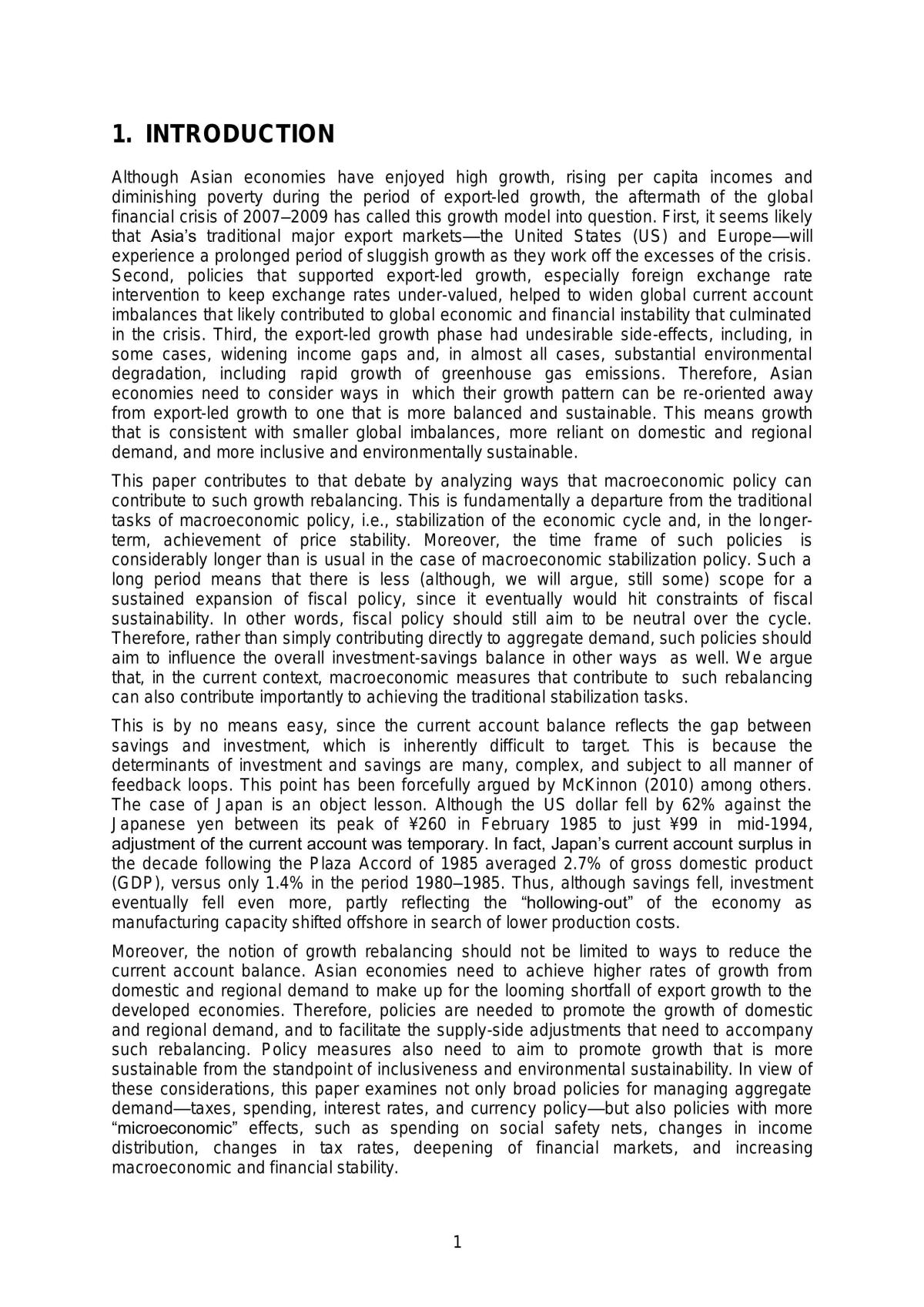Find
Search for over 200,000 study notes and past assignments!
Swap
Download study resources by swapping your own or buying Exchange Credits.
Study
Study from your library anywhere, anytime.
Sustainable Growth: rebalancing of growth away from dependence on exports
EC3102 - Macroeconomic Analysis II
24 Pages • Essays / Projects • Year Uploaded: 2022
The aftermath of the global financial crisis of 2007–2009 has called the export-led growth model of Asian economies into question. This paper describes the contribution that macroeconomic policy can make to promote a rebalancing of growth away from dependence on exports to developed economies to a more sustainable pattern of growth centered on domestic and regional demand. This represents a significant departure from the traditional uses of macroeconomic policy to stabilize the economic cycle and achieve stable and low inflation. The evidence suggests that macroeconomic policy can successfully contribute to growth rebalancing. Policy measures not only can affect aggregate demand directly, but can also affect it indirectly via their “microeconomic” impacts on private sector behavior. Although in the long-term fiscal policy should be balanced to maintain government debt stability and avoid crowding out of private investment, there may be substantial scope to expand monetary and fiscal policy in the medium-term to offset the deflationary effects of an appreciating currency during periods of current account reversal. Previous experience suggests that most of the needed stimulus can be provided by monetary policy, with only a supplementary role to be played by fiscal policy. Moreover, Asian economies with large current account surpluses tend to have sufficient fiscal space.
This document is 20 Exchange Credits
More about this document:
|
|
This document has been hand checkedEvery document on Thinkswap has been carefully hand checked to make sure it's correctly described and categorised. No more browsing through piles of irrelevant study resources. |
|
|
This is an Essay / ProjectEssays / Projects are typically greater than 5 pages in length and are assessments that have been previously submitted by a student for academic grading. |
|
|
What are Exchange Credits?Exchange Credits represent the worth of each document on Thinkswap. In exchange for uploading documents you will receive Exchange Credits. These credits can then be used to download other documents for free. |
|
|
Satisfaction GuaranteeWe want you to be satisfied with your learning, that’s why all documents on Thinkswap are covered by our Satisfaction Guarantee. If a document is not of an acceptable quality or the document was incorrectly described or categorised, we will provide a full refund of Exchange Credits so that you can get another document. For more information please read Thinkswap's Satisfaction Guarantee. |

Studying with Academic Integrity
Studying from past student work is an amazing way to learn and research, however you must always act with academic integrity.
This document is the prior work of another student. Thinkswap has partnered with Turnitin to ensure students cannot copy directly from our resources. Understand how to responsibly use this work by visiting ‘Using Thinkswap resources correctly’.
Browse NUS Subjects




